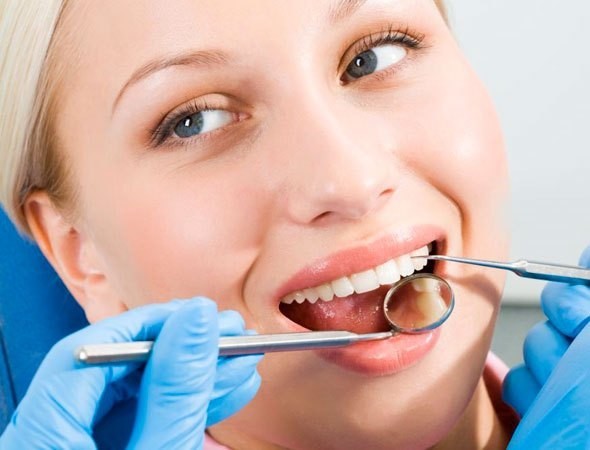To have excellent oral health, your dentist looks beyond your teeth to the structures that surround and support your teeth. Periodontics is the branch of dentistry that deals with these structures that include your gums and the underlying bone structure. We examine your gums each time we do a routine dental checkup to ensure you aren’t showing signs of periodontal disease. Then, if treatment is needed, we can do whatever procedures are required right here in our West Metro Dental office.
Did You Know…
- Gum disease is caused by bacteria that gathers on teeth to form plaque and may harden on teeth to form tartar?
- Nearly half of the adult population over 30 have some form of gum disease?
- Even children can have mild gum disease if their teeth are not cared for properly?
- Almost all cases of gum disease are completely reversible with the right care?

Diagnosis
Your dentist is always on the lookout for signs of gum disease. You can help by reporting symptoms such as:
- Bleeding gums
- Swollen gums
- Loose teeth
- Tender gums
- Red gums
- Bad breath
- Pain when chewin
When you come into our office, your dentist will check the firmness of your gums and evaluate the depth of the pockets between the gums and each tooth. We check to see if your gums are even, pink and healthy-looking. We also examine your jawbone to ensure there is no breakdown of the bone that supports your teeth. At the end of the examination, our dentist reports the findings. If there are signs of gum disease, we create a treatment plan designed especially for you.
Cleanings
Routine cleanings help protect your gums from gingivitis and periodontal disease. When our hygienist removes the plaque and washes away the germs from your teeth, they are doing more than cleaning your teeth. They are also keeping your gums healthy.
If you do have periodontal disease, we can do a more extensive, deep cleaning, often referred to as scaling and planing. The dental hygienist uses special tools to scrape away built-up tartar on the tooth root surfaces, paying special attention to the area around the gumline.
Preventing Gum Disease
Your dentist can help you develop better oral hygiene habits to prevent or even help reverse gum disease. While coming in for twice-yearly visits is crucial, you also need to take care of your teeth at home. Proper brushing and flossing are essential to maintaining healthy gums. Brushing your teeth removes much of the plaque from your teeth. Flossingremoves food particles that can stick to teeth and gums and cause the beginnings of periodontal disease. Your dentist can also recommend or prescribe an antibacterial mouth rinse to help reduce plaque-causing germs.


